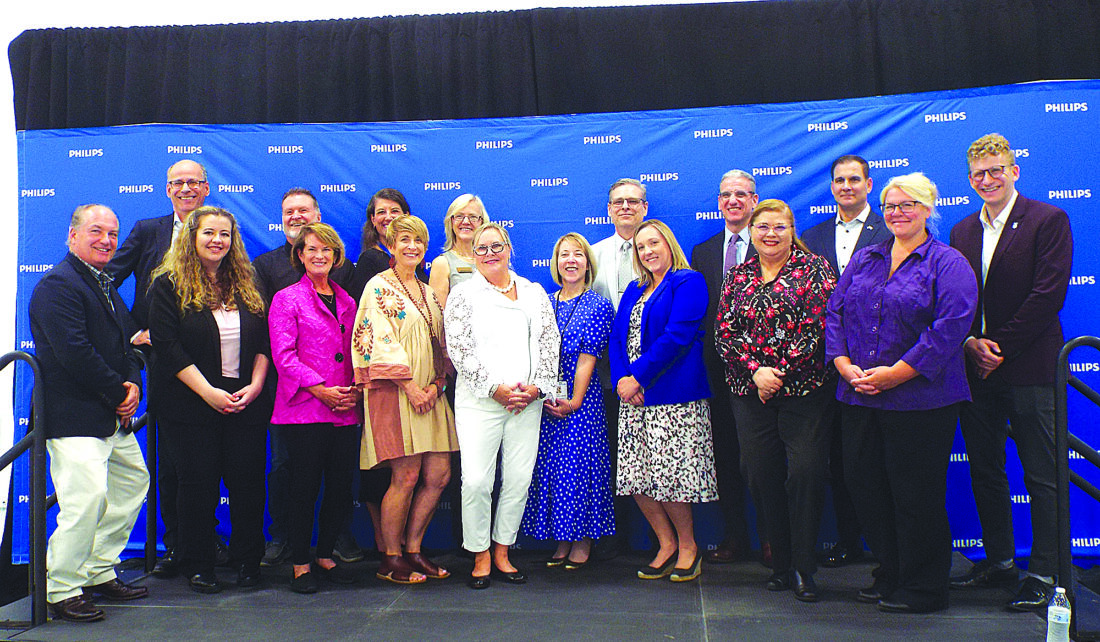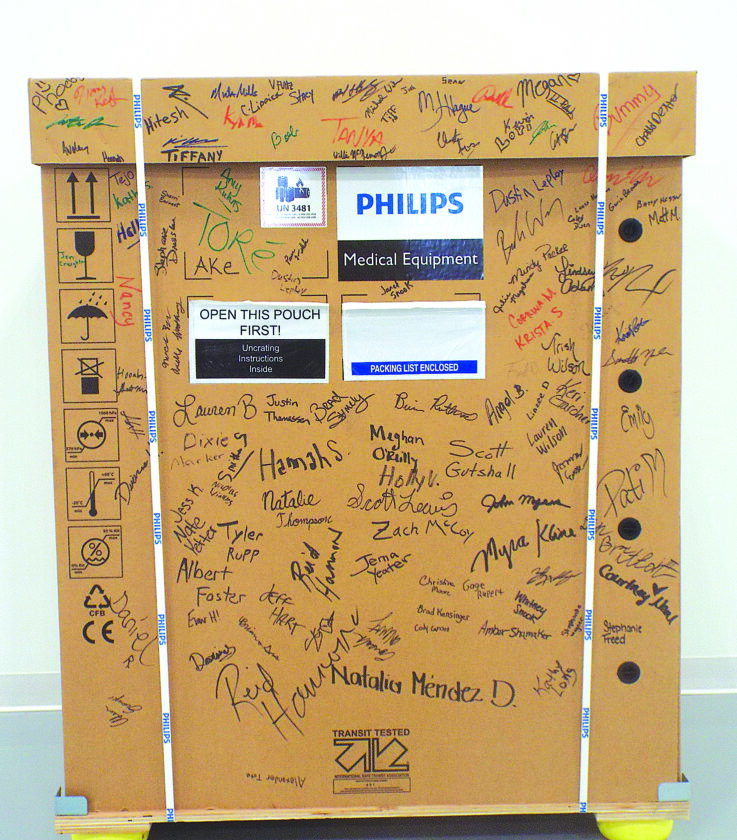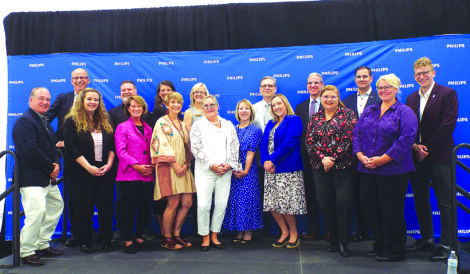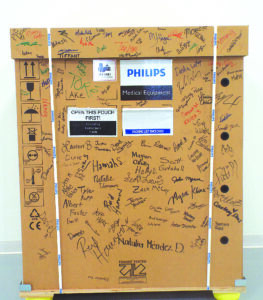Philips’ broadens manufacturing capabilities
Reedsville facility expected to add more than 100 jobs
-
Sentinel photo by LIV SUYDAM
Government and other officials joined the Philips Ultrasound Inc. crew at Thursday’s press conference and took a tour of the new facilities.
-
Sentinel photo by LIV SUYDAM
Employees at the Reedsville Philips Ultrasound Inc. signed their names on the box of the first ultrasound machine made after the location’s expansion.

Sentinel photo by LIV SUYDAM
Government and other officials joined the Philips Ultrasound Inc. crew at Thursday’s press conference and took a tour of the new facilities.
REEDSVILLE –Philips Ultrasound announced an expansion Thursday that would add about 120 new jobs to its local facility.
The $150 million expansion gives the company the ability to create the entire ultrasound system in Reedsville, opposed to only transducers, said Jeff Cohen, senior vice president and general manager of Philips
Ultrasound.
“We found that we need to have a broader presence of manufacturing in the United States, which is pretty critical to serve customers in the U.S and later on, all over the world, from Reedsville,” he said.
The expansion, he said, originated at the tail end of the pandemic. After months of planning, the company broke ground in November 2024. On Thursday, that vision came to life.

Sentinel photo by LIV SUYDAM
Employees at the Reedsville Philips Ultrasound Inc. signed their names on the box of the first ultrasound machine made after the location’s expansion.
The expansion added 24,000 square feet onto the already 40,000 square feet of facility. Costing upward of $30 million, the expansion provides the opportunity to manufacture the software and configurations of AI-enabled ultrasound systems for procedures in cardiovascular, general and maternal care all in one place.
Thanks to the expansion, Cohen said local medical centers will have access to faster delivery times.
Cohen explained that the initial expansion will include the addition of 60 jobs, and eventually 120, bringing the overall number of employees to 200.
In late July, the first products made in this additional space were shipped. Although the work has already begun, Cohen shared his hopes for this expansion, “It’s all about the patient and the customer. We really want to ensure that clinicians have the best healthcare solutions out there, providing better care to more people. By centralizing all of manufacturing together, it gives us a lot more efficiency. We can react faster to customer demand, we can be a lot more cost effective as well since we aren’t flying parts all over the place, so really this is going to be the north star here, the hub for our manufacturing support in the U.S.,” he continued, “We have a big (research and development) team here as well that does a lot of the technology development for the transducers, and we are looking to continue to grow that as well, given the ecosystem, specifically in the valley here and with Penn State.”
By the end of this year, Philips hopes to be at full production capacity.


